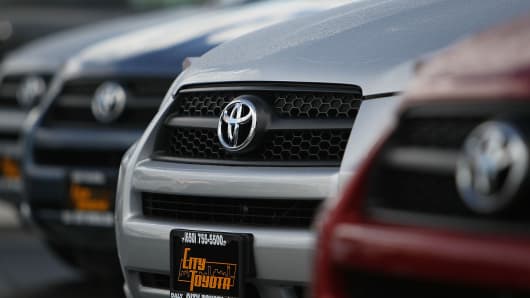By comparison, foreign brands have steadily grown over the last 40 years. In recent years, many added dealerships because of the auto meltdown in 2009. Coming out of that crisis, many dealerships that used to sell Chrysler or GM models were closed and later reopened with new owners selling foreign brands like Hyundai r Kia.
One major dealer who sells both domestic and foreign models said the shift has largely gone unnoticed because Americans have become more comfortable with a wider variety of Asian brands.
"It used to be Toyota, Honda and Nissan were the truly established Asian brands in America. Now, people are just as comfortable with Hyundai, Kia and Subaru," said the dealer, who did not want to reveal his name because he sells both domestic and foreign brands.
Will the Big 3 ever retake the lead in the U.S.?
In the late '90s, when the Big 3 had almost a 60 percent market share, few expected Detroit to lose so much ground, so quickly in the U.S. By 2007, their share of the U.S. fell below 50 percent. Now, with Detroit's share of the U.S. market down to 45 percent, the question is where it finally settles. Is it possible the Big 3 could retake the lead in the U.S.?
Scott Adams doesn't think so.
"Will it change? No. The Big 3 are definitely much more competitive than they were 10 years ago, but so are the Asian brands," Adams said. (Read More: Toyota Camry Surges Past Ford F-150 to US Top Spot.)
Adams has seen the competition first hand. He sells Toyota and Scion models as well Chevrolet, Chrysler, Dodge, Jeep and Ram.
"When people come into my dealerships their concern is 'what's best for me?' They don't care about the brand name and whether it's American or Japanese," he said. "They just want the car or truck that gives them what they want."
These days, what American car buyers want are Asian brand cars and trucks.
—By CNBC's Phil LeBeau
__________________________
Click on Ticker to Track Corporate News:
- General Motors
- Ford Motor
- Toyota Motor
- Nissan
- Honda Motor
___________________________ Questions? Comments? BehindTheWheel@cnbc.com and Follow me on Twitter @LeBeauCarNews






